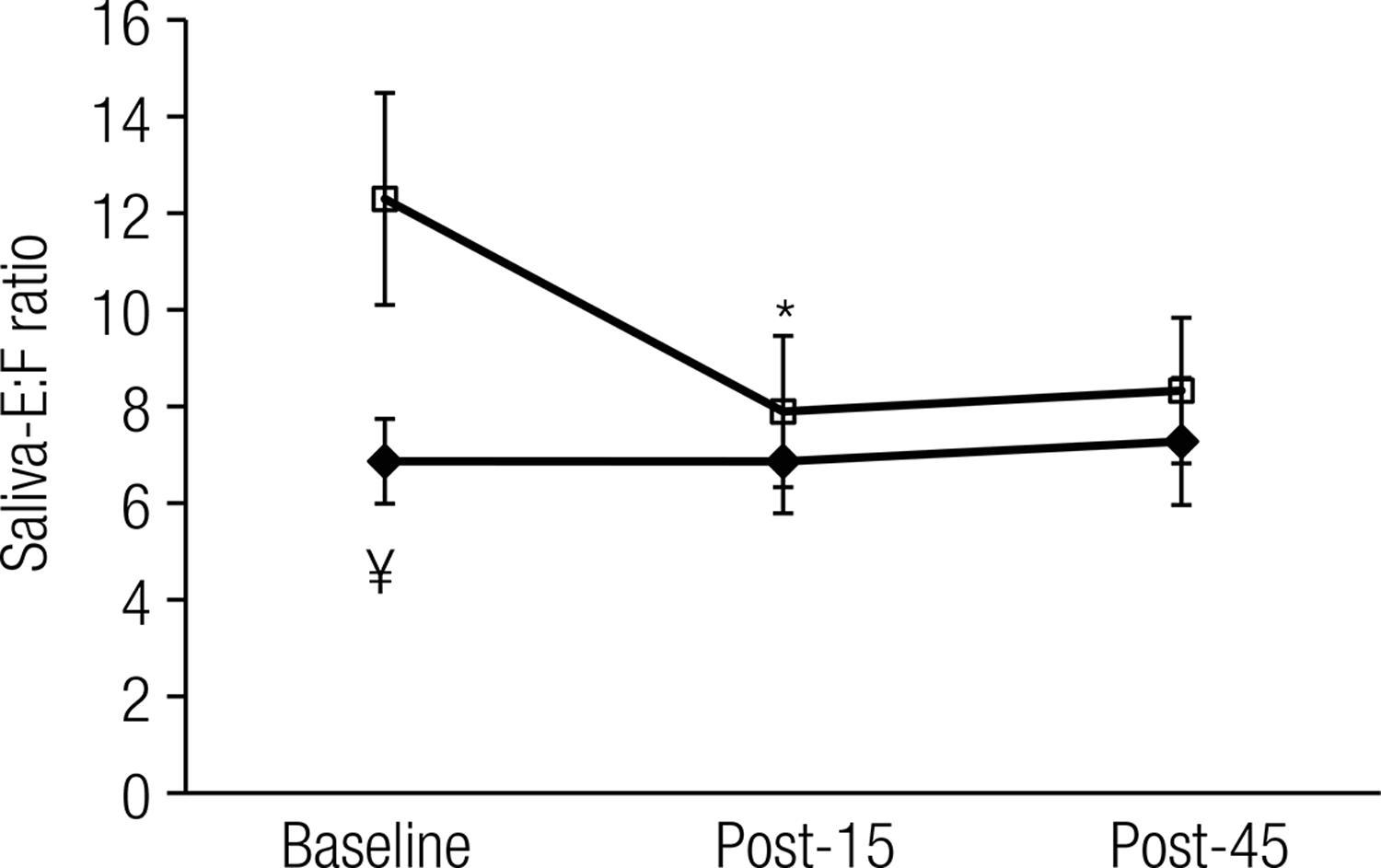ABSTRACT
Objective
The enzymatic activity of 11β-hydroxysteroid dehydrogenase-2 (11β-HSD2) is key to protecting mineral corticoid receptors from cortisol and has been implicated in blood pressure regulation. Grapefruit juice (GFJ) and acidity are thought to inhibit this enzyme in vitro. This study examines the effect of GFJ and intense exercise on 11β-HSD2 enzyme activity in vivo.
Subjects and methods
Eighteen subjects ingested GFJ or apple juice (CON) on separate days prior to reporting to the laboratory in a randomized order. Saliva (Sal) samples were obtained at baseline, 15 and 45 minutes post-treadmill stress test; Sal cortisone (E) and cortisol (F) levels were determined, and the Sal cortisone:cortisol (E:F) ratio was used as an index of 11β-HSD2 enzyme activity at rest and after intense muscular work.
Results
GFJ treatment decreased baseline 11β-HSD2 enzyme activity (44%) and Sal-E (28%) compared to CON (both, p < 0.05). Sal-E (r = 0.61, p < 0.05) and Sal-F (r = 0.66, p < 0.05) were correlated with diastolic blood pressure (DBP) in GFJ-treated individuals. Treadmill stress significantly increased Sal-E and Sal-F but did not alter 11β-HSD2 enzyme activity regardless of treatment. When treatments were examined separately, CON 11β-HSD2 enzyme activity decreased by 36% (p < 0.05) from baseline to 15 post-treadmill exercise.
Conclusion
Our findings suggest that GFJ and intense muscular work decrease 11β-HSD-2 activity independently, and no additive effect was noted. The association between DBP and the levels of Sal-F and Sal-E during the GFJ trial should be interpreted cautiously and warrants further investigation.
Cortisol; cortisone; exertion; stress; citrus flavonoids




